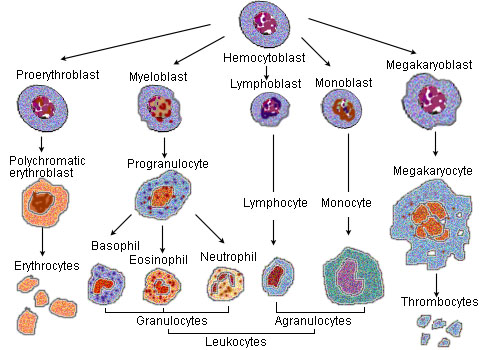Scientists accidentally discovered a possible way to combat leukemia

Scientists at Stanford University Medical School have made a discovery as a result of random observation that can help fight a type of leukemia. Their work under the guidance of an assistant professor, doctor of medicine Kavi Madzheti, published in the journal Proceedings of the National Academy of Sciences .
B-cell lymphoblastic leukemia is a serious disease with very poor prognosis. It often develops in children under the age of 6 years. To a greater extent, for reasons unknown so far, men are subject to it. In this disease, a large number of immature lymphoid cells ( lymphoblasts ) are formed in the body. In the normal state, they are formed in limited quantities and grow into normal lymphocytes - cells of the immune system.
A student at the institute, Scott McClilan, watching these cells, found that some of them are transformed into macrophages - cells that help the immune system. Learning about this, Madzheti recalled a long-time study in mice, in which the same cancer cells could be transformed into macrophages with the help of proteins that were associated with specific DNA sequences.
')
By applying this method to human cells, the researchers achieved the same result. In addition, there is reason to believe that since macrophages sprouting from lymphoblasts carry chemical information about "bad" cells, this may help the immune system to fight them more actively.
The next step will be to find a medicine that will contribute to a similar process in a living organism. Searches will not be conducted from scratch - in medicine, they are already using therapy with retinolic acid , which turns leukemic cells into granulocytes .
Source: https://habr.com/ru/post/365257/
All Articles